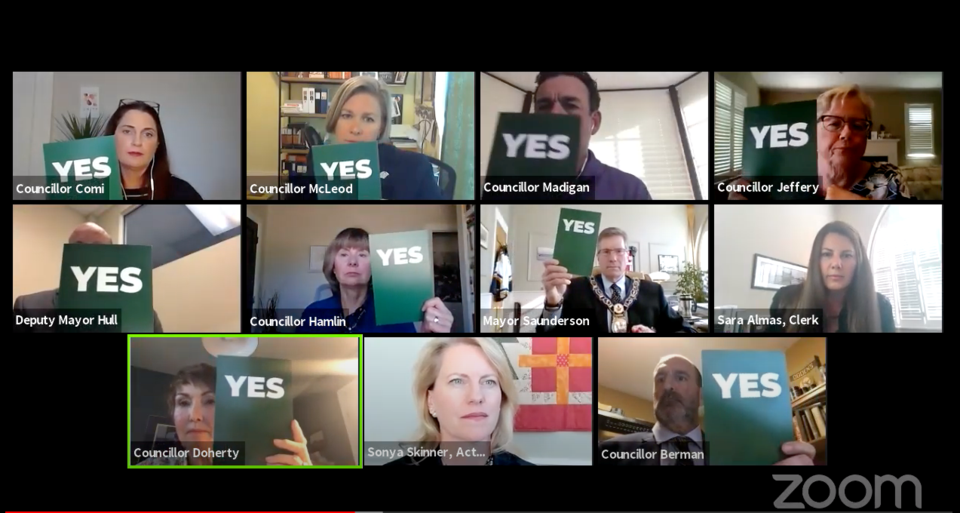The region’s medical officer of health is recommending municipal council’s continue remote meetings instead of in-person meetings. Collingwood has prepared for that advice by changing its bylaws.
“Given the ongoing potential for COVID-19 transmission, and the rigorous requirements that would need to be in place to hold public in-person meetings of council … I continue to recommend that it would be preferable to continue council meetings via remote means,” wrote Dr. Charles Gardner, medical officer of health for Simcoe Muskoka District Health Unit in a letter to the municipalities in his jurisdiction.
But the matter isn’t as simple as just carrying on with Zoom chats for council meetings. Legislation made before COVID-19 stated council members had to be physically present to count as a legal quorum.
Collingwood council voted in favour of a bylaw change on July 29 that would allow council to continue its video meetings. The change also required the province to change pre-pandemic laws.
Prior to COVID-19, the municipal act required municipalities to have a physical quorum present to conduct town business, meaning a video conference meeting wasn’t a legal way for council to vote. However, once the province declared a state of emergency, it also amended the municipal act to allow electronic participation in meetings while a state of emergency was in place.
The Town of Collingwood never declared a state of emergency, but the County of Simcoe did.
So Collingwood council has been able to meet electronically throughout the pandemic and has been legally allowed to vote on motions and bylaws for the duration.
When the province passed the COVID-19 economic recovery act (Bill 197) it also amended the municipal act to allow electronic meetings without a state of emergency declaration.
“If the county lifts their state of emergency we are still permitted to conduct our meetings virtually which is in line with the recent letter from Dr. Gardner,” said Collingwood Clerk Sara Almas. “Collingwood learned and adapted very quickly to virtual meetings using ZOOM meetings and webinars.”
The town has included public participation in meetings by allowing residents and presenters to call in for public meetings or to make a deputation. If the town returned to in-person meetings, they would also have to return to public deputations made in-person or perhaps a mix of electronic and physical participation.
“For us, to mix electronic participation with in-person meetings would be much more problematic and less safe for council, staff and the public,” said Almas. “We appreciate the letter from Dr. Gardner emphasizing the preference to continue with virtual meetings until it is safe to meet in person again.”
Gardner’s letter also encouraged municipal council to lead by example by following prevention practices such as wearing a mask in public spaces and keeping a two-metre distance from anyone not in their social circle.
“With each stage in opening the economy, and with the recommencement of schools in the fall, we all need to remain committed to these daily practices to compensate for the added risk of transmission that comes with these changes,” wrote Gardner. “It is very important that we do not confuse the opening of the economy and schools with an end to the risk of a resurgence of COVID-19.”
The changes made to Collingwood’s bylaws allow council, local boards, and committees to participate in a meeting by phone or electronic video if:
- It is not safe to attend in person due to a natural weather event,
- If there are health and safety restrictions determined by the CAO in consultation with the mayor and the town’s emergency control group
- If guidelines set out by the Simcoe Muskoka Health Unit, OPP, or the provincial government recommend it
- If the emergency control group is activated or any level of government or health unit declares a state of emergency
